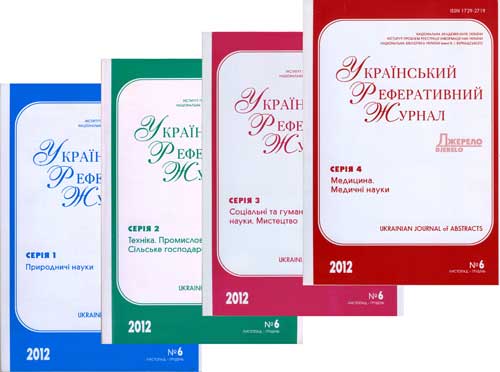РЕФЕРАТИВНА БАЗА ДАНИХ "УКРАЇНІКА НАУКОВА"
Abstract database «Ukrainica Scientific»
Бази даних
Реферативна база даних - результати пошуку
|
|
Пошуковий запит: (<.>ID=REF-0000695661<.>) | |||
|
Загальна кількість знайдених документів : 1 |
|||
Максимець Т. А. Адипокіновий і метаболічний профіль у пацієнтів з ішемічною хворобою серця залежно від досягнення цільових рівнів ліпопротеїдів низької щільності / Т. А. Максимець, Є. Я. Скляров // Експерим. та клініч. фізіологія і біохімія. - 2018. - № 3. - С. 102-107. - Бібліогр.: 8 назв. - укp. Cardiovascular diseases remain the major cause of morbidity and mortality in developed countries among which coronaryі artery disease occupies the first place (CAD). First line drugs for primary and secondary CAD prevention and performed lipid lowering therapy are statins. European guidelines recommend a low-density lipoprotein cholesterol (LDL-C) target of << 1,8 mmol/L, and/or <$Ea~symbol У~50~%> reduction when the target level cannot be reached, for patients at very high cardiovascular risk. Although LDL-C treatment goals to reduce the risk of CAD are clear, many patients fail to reach their LDL-C goals. It is caused by the presence of familial hvpercholesterolaemia, suboptimal dosing, poor adherence and bad portability. Adipose tissue secretes many adipokines including adiponectin, omentin-1, leptin, resistin, retinol binding protein-4, tumor necrosis factor-alpha, and interleukin-6. These adipokines play important roles in carbohydrate and lipid metabolism, homeostasis, insulin resistance, diabetes, atherosclerosis, endothelial dysfunction, inflammation and cardiovascular function. The correlation between CAD and serum adipokines has been identified recently, but the effect of statin therapy on plasma adiponectin and omentin-1 levels has not been thoroughly studied. The aim of the study was to compare the metabolic profile of patients with the coronary disease and obesity who achieved and failed to achieve target levels of LDL-C during the atorvastatin treatment; to investigate the correlation between adipokines (adiponectin, omentin-1) levels and other cardiovascular risk factors. The study included 46 patients aged 45 - 77 years with the coronary artery disease and obesity. The diagnosis of CAD was considered to be verified by the results of coronarography and/or the presence of myocardial infarction in the medical history more than three months before. Participants were divided into two groups according to the achievement of LDL-C target (16 LDL-C target achievers vs. 30 non-achievers; the 1<^>st Індекс рубрикатора НБУВ: Р410.11 Рубрики: Шифр НБУВ: Ж16160 Пошук видання у каталогах НБУВ Додаткова інформація про автора(ів) публікації: (cписок формується автоматично, до списку можуть бути включені персоналії з подібними іменами або однофамільці)
| |||
| Національна бібліотека України імені В. І. Вернадського |
 |
| Відділ наукового формування національних реферативних ресурсів |
 |
| Інститут проблем реєстрації інформації НАН України |
Всі права захищені © Національна бібліотека України імені В. І. Вернадського